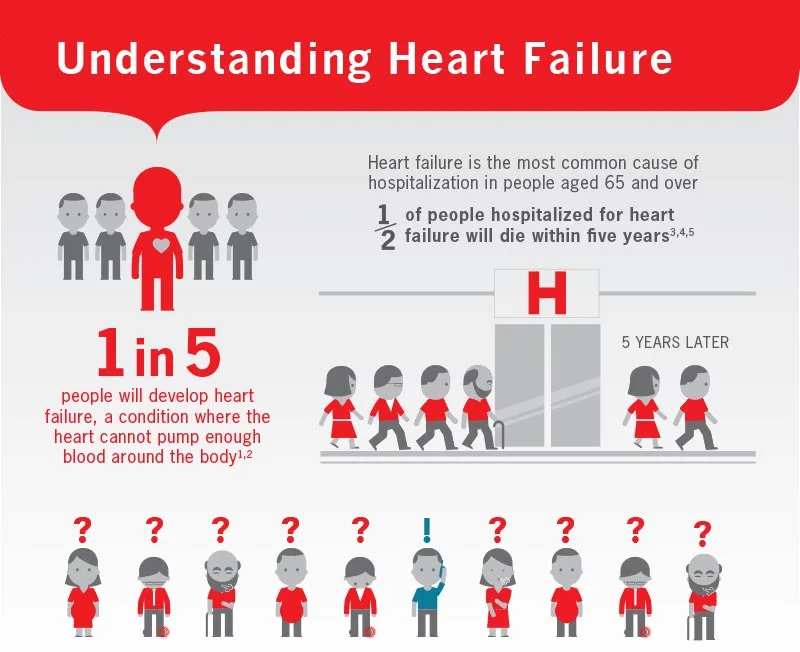One in five people in Europe will experience heart failure, a life threatening disease where the heart is unable to pump enough blood around the body, but fewer than one in three adults over the age of 50 are aware of this risk, according to a recent survey.
To understand the general population’s awareness of heart failure, Novartis conducted Europe’s largest ever heart failure awareness survey that questioned 11,000 people in 11 European countries.
The findings revealed that millions of people could miss the warning signs of heart failure. Fewer than 1 in 10 (8%) of those surveyed could identify three common symptoms of heart failure and nearly a quarter of people said they would wait a week or more—or would not seek medical advice at all—when experiencing symptoms, including tiredness, swollen ankles and weight gain of 2kg within 48 hours.
While awareness was low overall, the rates were not consistent between countries. For example, while only 5 percent of respondents in Great Britain, Germany and Switzerland correctly identified three correct symptoms of heart failure, 17 percent in Sweden could do the same.

Download Infographic (PDF 1.3 MB)
Nearly 90 percent mistook at least one warning sign of heart failure for a normal sign of ageing, and 91 percent did not know some common causes of heart failure, such as damage caused by a heart attack or a weak heart muscle.
“These findings are extremely important because they highlight the low level of understanding about heart failure,” said Dr Laurie Letvak, Global Head Development, Critical Care Franchise at Novartis. “It’s essential to raise awareness about this disease so people can become familiar with the symptoms and seek medical care sooner rather than later.”
Almost half of people surveyed wrongly thought patients with heart failure live longer than those with advanced breast or bowel cancer, heart attack or stroke, despite survival rates for heart failure being much lower than all these conditions.
At present there is no cure for heart failure, but patients who are diagnosed early, follow their treatment and make simple lifestyle changes can live longer, feel better and be more active.
Treatment for heart failure has not changed in the past two decades for the more than 20 million people worldwide who have the disease, meaning thousands continue to die of the condition every year. In addition to ongoing efforts to bring innovative new treatments to this area of unmet need, swift diagnosis and proper care in the early stages remain vital to slow the progression of the disease, and, in some cases, reverse the damage.
Coupled with the economic impact of an ageing population and risk factors such as obesity and lifestyle, diagnosis of heart failure is expected to increase by a quarter before 2030. Currently each year, heart failure costs the world economy $45 billion, a number that’s expected to double in the next 15 years.
On European Heart Failure Awareness Day, organizations across Europe will join forces to encourage greater awareness of heart failure, asking for more to be done to improve understanding of its symptoms and seriousness. Now more than ever it’s important to recognize the signs of heart failure and draw attention to this debilitating disease.



